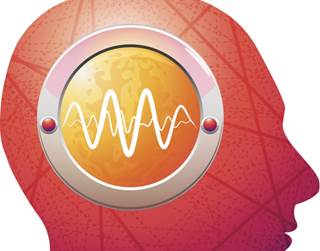he Neurology Advisor take:
It is not uncommon for people with depression or bipolar disorder to complain that their thinking has gotten less sharp. And new research, using brain scans, indicates that activity in the part of the brain involved in executive functioning, such as working memory, problem solving, and reasoning, is indeed impacted in the two conditions.
University of Michigan researchers gave 612 women — more than two-thirds had major depression or bipolar disorder — a test involving prolonged concentration. The women with either depression or bipolar disorder did equally bad on the test, a finding, researchers say, indicate that the two disorders are more similar than different, the reported in the journal Brain.
“These findings support the idea of seeing mood disorders dimensionally, as a continuum of function to dysfunction across illnesses that are more alike than distinct,” lead author Kelly Ryan, PhD, a neuropsychologist, said in a statement.
Brain scans of 52 of the women as they were doing the test were also taken. Those with depression or bipolar disorders had different levels of activity in the brain’s right poster parietal cortex compared with healthy participants.
The researchers say their work supports the National Institute of Mental Health’s Research Domain criteria, a project to find new ways of classifying mental disorders independent of the diagnostic codes found in the DSM-5.
 Depression, Bipolar Disorder Linked to Reduced Brain Connectivity
Depression, Bipolar Disorder Linked to Reduced Brain ConnectivityPeople with depression or bipolar disorder often feel their thinking ability has gotten “fuzzy,” or less sharp than before their symptoms began. Now, researchers have shown in a very large study that effect is indeed real — and rooted in brain activity differences that show up on advanced brain scans.
What’s more, the results add to the mounting evidence that these conditions both fall on a spectrum of mood disorders, rather than being completely unrelated. That could transform the way doctors and patients think about, diagnose and treat them.
Depression, Bipolar Disorder Linked to Reduced Brain Connectivity.